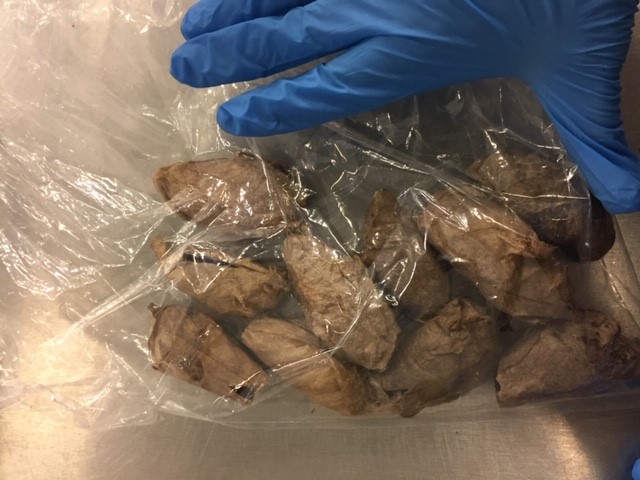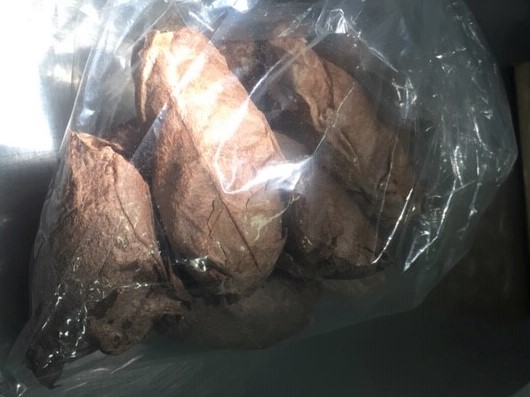With the so-called Murder Hornets on the lose in the north west, pine beetles devastating our forests, and pythons consuming native species in the Everglades, what is next?
Who sent these insects to America?
Terrorism comes in many forms, including the insect kind. Read the press release below to learn more about the invasive pest that feeds on foliage of fruit plants like citrus and guava recently intercepted along our borders.
Who sent these insects to America?
Terrorism comes in many forms, including the insect kind. Read the press release below to learn more about the invasive pest that feeds on foliage of fruit plants like citrus and guava recently intercepted along our borders.
The following press release is extremely disturbing.
MIAMI – U.S. Customs and Border Protection (CBP) agriculture specialists recently intercepted live insects in a mail package at Miami International Mail facility.
On April 28, mail that arrived from the United Kingdom destined for California received further inspection by CBP agriculture specialists following an x-ray of the package.
The examination revealed 11 live insects that were secured and promptly submitted to the U.S. Department of Agriculture (USDA) Miami Plant Inspection Station for identification.
“This type of interception is significant, as the introduction of these caterpillars into our agriculture system could cause immeasurable damage,” said Christopher Maston, CBP Port Director at Miami International Airport. “CBP agriculture specialists perform work that is critical to protecting the U.S. agriculture industry by preventing the introduction of harmful pests into the country.”
The USDA identified these insects as Attacus atlas caterpillars. This type of caterpillar is a serious agricultural pest that feeds voraciously on the foliage of fruit-plants like citrus and guava resulting in severe damage.
In fiscal year 2019, CBP agriculture specialists conducted more than 1.7 million interceptions of prohibited plant materials, meat, and animal byproducts at ports of entry while also stopping nearly 118,000 potentially dangerous pests.
CBP's border security mission is led at ports of entry by CBP officers from the Office of Field Operations. Please visit CBP Ports of Entry to learn more about how CBP’s Office of Field Operations secures our nation’s borders, or by visiting CBP.gov.
Press Release taken from https://www.cbp.gov/newsroom/local-media-release/cbp-miami-seizes-live-insects-heading-california
MIAMI – U.S. Customs and Border Protection (CBP) agriculture specialists recently intercepted live insects in a mail package at Miami International Mail facility.
 |
| Live caterpillars intercepted at Miami Airport |
On April 28, mail that arrived from the United Kingdom destined for California received further inspection by CBP agriculture specialists following an x-ray of the package.
The examination revealed 11 live insects that were secured and promptly submitted to the U.S. Department of Agriculture (USDA) Miami Plant Inspection Station for identification.
“This type of interception is significant, as the introduction of these caterpillars into our agriculture system could cause immeasurable damage,” said Christopher Maston, CBP Port Director at Miami International Airport. “CBP agriculture specialists perform work that is critical to protecting the U.S. agriculture industry by preventing the introduction of harmful pests into the country.”
The USDA identified these insects as Attacus atlas caterpillars. This type of caterpillar is a serious agricultural pest that feeds voraciously on the foliage of fruit-plants like citrus and guava resulting in severe damage.
 |
| Live caterpillars intercepted at Miami Airport |
CBP agriculture specialists are the front line in the fight against the introduction of harmful insects and diseases into the U.S. They safeguard American agriculture by stopping plant pests and exotic foreign animal diseases that could harm vital agriculture resources at our nation’s borders.
In fiscal year 2019, CBP agriculture specialists conducted more than 1.7 million interceptions of prohibited plant materials, meat, and animal byproducts at ports of entry while also stopping nearly 118,000 potentially dangerous pests.
CBP's border security mission is led at ports of entry by CBP officers from the Office of Field Operations. Please visit CBP Ports of Entry to learn more about how CBP’s Office of Field Operations secures our nation’s borders, or by visiting CBP.gov.
Press Release taken from https://www.cbp.gov/newsroom/local-media-release/cbp-miami-seizes-live-insects-heading-california
Comments
Post a Comment